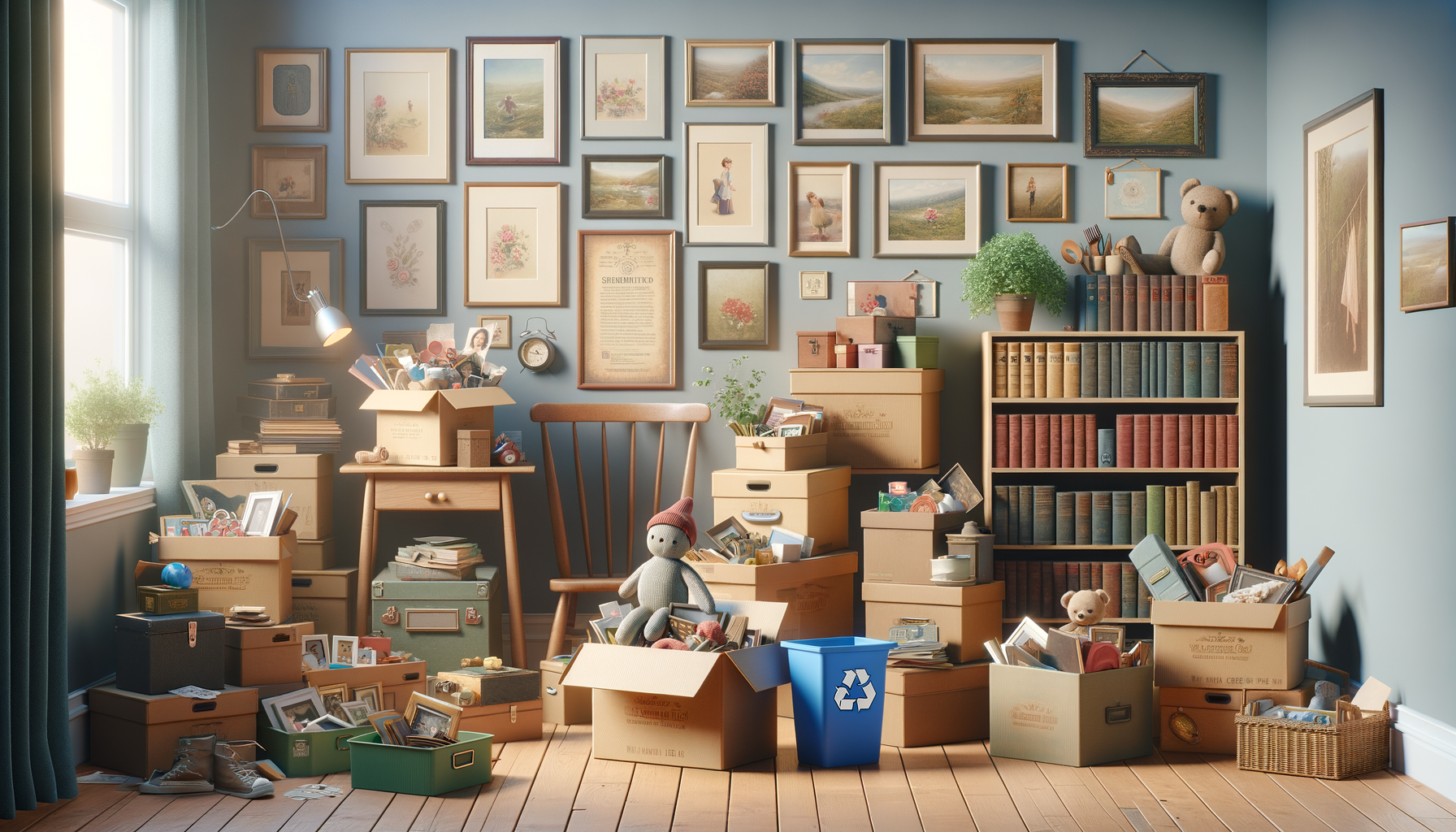
How To Get Rid Of Sentimental Clutter
Understanding Sentimental Clutter
Sentimental clutter consists of items that hold emotional value, often tied to memories of significant life events or loved ones. While these items can evoke positive feelings and nostalgia, they can also become overwhelming and take up valuable space in our homes. Understanding why we hold onto these items is the first step in addressing sentimental clutter. Many people keep such objects due to fear of forgetting the associated memories or out of guilt for discarding gifts from loved ones. However, it’s essential to recognize that memories reside within us, not within the items themselves.
In the United States, where consumer culture often encourages accumulation, letting go of sentimental items can be particularly challenging. A study by the UCLA Center on Everyday Lives of Families found that clutter can increase stress levels, especially among women. This highlights the importance of decluttering for mental well-being. By acknowledging the emotional attachment and understanding the psychological barriers, individuals can begin to separate the memory from the physical item.
To manage sentimental clutter effectively, consider asking yourself a few questions: Does this item bring me joy? Would I remember the associated memory without it? Is it serving a purpose in my life now? These questions can help you evaluate whether an item is worth keeping or if it’s time to let it go. Remember, letting go of physical items doesn’t mean letting go of the memories or the love they represent.
Practical Steps to Declutter Sentimentally
Once you’ve understood the emotional ties to your belongings, it’s time to take practical steps toward decluttering. Start by setting a clear goal for what you want to achieve. Whether it’s creating more space, reducing stress, or simplifying your life, having a goal in mind can motivate you throughout the process. Begin with small, manageable areas, such as a single drawer or a corner of a room, to avoid feeling overwhelmed.
Sort items into categories: keep, donate, recycle, or discard. For items you decide to keep, consider how they can be displayed or stored in a way that honors their significance without causing clutter. For instance, creating a memory box for small, precious items can be a meaningful way to preserve memories without them taking over your living space.
Consider taking photos of items before letting them go. This allows you to keep a digital memory without the physical clutter. If an item has significant value, such as a family heirloom, think about passing it on to a family member who might appreciate it. Alternatively, donating items to someone who can benefit from them can provide a sense of fulfillment and purpose.
Throughout the process, remind yourself of the benefits of decluttering: more space, less stress, and a clearer mind. Celebrate your progress, no matter how small, and be patient with yourself. Decluttering is a journey, not a one-time event.
Maintaining a Clutter-Free Environment
After successfully decluttering, maintaining a clutter-free environment requires ongoing effort and mindfulness. Establishing new habits can prevent sentimental clutter from reaccumulating. One effective strategy is the “one in, one out” rule: for every new item brought into the home, one should be removed. This helps maintain balance and prevents future clutter.
Regularly scheduled decluttering sessions can also help keep sentimental clutter at bay. Consider setting aside time every few months to reassess your belongings and ensure they still align with your current life and values. During these sessions, revisit the questions that guided your initial decluttering process to determine if any items no longer serve a purpose.
Another helpful approach is to practice gratitude and mindfulness. By focusing on the present and appreciating what you have, you may feel less inclined to hold onto items out of fear or guilt. Mindfulness practices, such as meditation or journaling, can also support emotional well-being and reduce the attachment to physical items.
Finally, consider seeking support from friends or professional organizers if needed. Sometimes an outside perspective can provide clarity and motivation. By integrating these strategies into your lifestyle, you can enjoy the benefits of a clutter-free environment and the peace of mind that comes with it.


